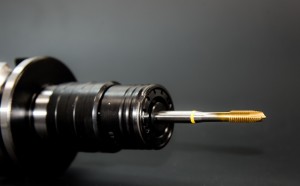 Have you heard of manufacturing engineering? While most people are familiar with manufacturing, “engineering” brings a new element to this industry. Manufacturing engineering refers to a set of disciplines in dealing with manufacturing sciences, research, design, development, machines, tools and equipment. In essence, it combines the elements of engineering with the core structure of manufacturing. Professionals known as “manufacturing engineers” are responsible for turning raw materials into a new product via the most efficient manner possible.
Have you heard of manufacturing engineering? While most people are familiar with manufacturing, “engineering” brings a new element to this industry. Manufacturing engineering refers to a set of disciplines in dealing with manufacturing sciences, research, design, development, machines, tools and equipment. In essence, it combines the elements of engineering with the core structure of manufacturing. Professionals known as “manufacturing engineers” are responsible for turning raw materials into a new product via the most efficient manner possible.
While the filed of manufacturing engineering has been around for quite some time, it just recently picked up momentum due to technological developments. After 1960s, for instance, industrialized countries, including the United States, began using new technologies in their factors, such as numerical control machine tools, automated production systems, quality control systems, industrial robots, computer-controlled welding machine and more. All of these tools have proven useful in helping manufacturing engineers achieve their goal.
Automation is one of the biggest changes in manufacturing engineering. With manufacturing companies now automating many tasks that were previously accomplished by hand, it has opened the doors to a new world of possibilities. Automated manufacturing involves the use of automated systems and equipment to produce products in a factory. It undoubtedly offers some key benefits, such as reduced costs, improved efficiency, lower risk of employee injury, reduced lead times, reducing handling, increased work flow, and improved worker morale (among others).
Another development in the manufacturing industry that has impacted the manufacturing engineering is robotics. Robotics goes hand in hand with automation, as it’s often used to automate processes. Robots are often preprogrammed to interact with the physical world, with engineering employing kinematics and mechanics to use them.
It’s important to note that there are actually certifications available for manufacturing engineering. Most manufacturing engineers have a bachelor’s degree in engineering, as well as a major in manufacturing engineering. As such, they typically spend 4-5 years in school at minimum. Furthermore, the actual work involved as a manufacturing engineering technologies requires additional training.
Hopefully, this gives you a better understanding of manufacturing engineering and how it works. In essence, manufacturing engineering is a blending of engineering into manufacturing. Manufacturing engineers seek to optimize the production of products from raw materials in the most efficient and cost-effective manner possible.
